The Rise of Smart Cities and Their Impact on Real Estate
In an era where technology continues to redefine the way we live, work, and interact with our surroundings, the concept of smart cities has emerged as a transformative force, reshaping urban landscapes across the globe. As these intelligent urban hubs continue to evolve, their impact on various sectors, including real estate, is becoming increasingly profound.
Smart cities leverage cutting-edge technologies to enhance efficiency, sustainability, and the overall quality of life for their inhabitants. From advanced data analytics and the Internet of Things (IoT) to artificial intelligence (AI) and connectivity, these cities are at the forefront of the digital revolution. As a result, the real estate industry is experiencing a significant shift, with new opportunities and challenges emerging in the wake of this technological renaissance.
One of the primary drivers of change in the real estate sector within smart cities is the integration of IoT devices and sensors. These interconnected devices collect and analyze vast amounts of data, providing valuable insights into urban dynamics. For real estate developers, this data is a goldmine, offering a deeper understanding of how people move, interact, and utilize spaces within the city. Armed with this knowledge, developers can design and construct buildings that are not only aesthetically pleasing but also functionally optimized for the needs of the community.
Smart buildings, equipped with state-of-the-art technologies, are becoming the new standard in urban development. These structures are energy-efficient, environmentally sustainable, and feature intelligent systems that enhance security and comfort. The demand for such spaces is rising, and real estate developers are responding by incorporating smart technologies into their projects. This shift is reshaping property values, with smart buildings commanding a premium in the market due to their long-term cost savings and the allure of a technologically advanced lifestyle.
The rise of smart cities also introduces the concept of connected neighborhoods. Residents can enjoy seamless connectivity, with smart transportation systems, integrated healthcare services, and educational institutions equipped with cutting-edge technology. As these amenities become integral to urban living, the value of real estate in well-connected neighborhoods is on the rise. Homebuyers and renters increasingly prioritize locations that offer not just a place to live but an integrated and technologically advanced lifestyle.
Furthermore, the emphasis on sustainability in smart cities has a direct impact on real estate development. Green building practices, renewable energy sources, and eco-friendly designs are becoming standard considerations for real estate projects. The integration of sustainable technologies not only aligns with the global push towards environmental responsibility but also positions properties in smart cities as more attractive and future-proof investments.
However, the transformation towards smart cities is not without its challenges for the real estate sector. The initial costs of implementing smart technologies can be substantial, posing financial hurdles for developers. Additionally, the rapid pace of technological advancement requires real estate professionals to stay agile and adapt to ever-changing trends. As cities evolve, so must the real estate industry, embracing innovation to remain competitive in this dynamic landscape.
How have you seen these trends around you, or have you seen them at all? If you're interested to hear more, let's talk about the impact this trend could have on you.








